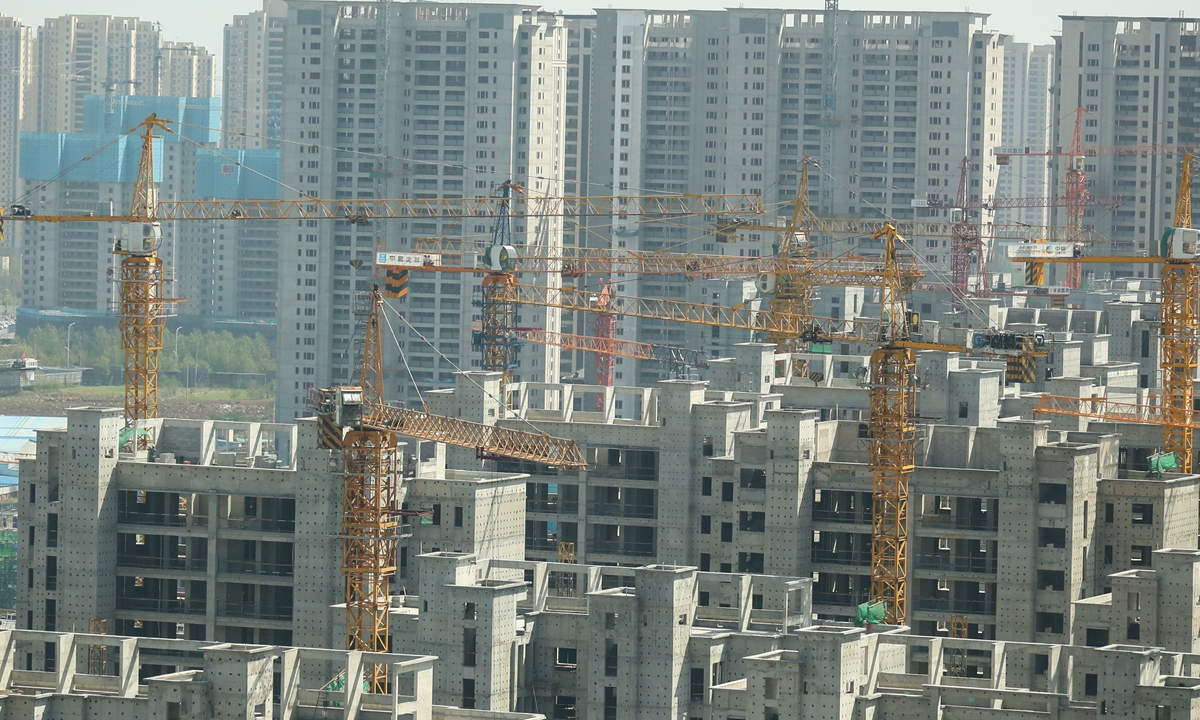
A housing project under construction in Shenyang, Northeast China's Liaoning Province. File photo: cnsphoto
Banks in several Chinese cities have made further cuts to mortgage rates for first-time home buyers to below 4 percent. Industry experts said that the market will see a faster recovery as pro-growth government measures start to take effect.
China's central bank has cut the loan prime rate (LPR) twice this year, followed by many banks cutting mortgage rates for new homes to around four percent. On September 29, the People's Bank of China, the central bank, said it would allow eligible cities to further cut mortgage rates for first-time home buyers.
North China's Tianjin Municipality, Shijiazhuang in North China's Hebei Province, Jining in East China's Shandong Province and multiple other cities have seen banks reduce mortgage rates for home buyers to below 4 percent.
The lowest rate hits 3.7 percent, according to a report by Securities Daily.
Chinese cities have also announced measures to boost the recovery of the real estate market, from lowering interest rates for housing provident fund loans and cutting down payments to granting subsidies for home purchases.
As the measures take effect, it is believed the property market will likely see a faster recovery, experts said.
"The housing market is worth looking forward to, especially in the next year," Song Ding, a research fellow at the Shenzhen-based China Development Institute, told the Global Times on Tuesday.
The measures announced so far are short-term steps meant to address problems that have emerged in the past two years, including debt defaults by some developers and an imbalance between supply and demand, Song said.
In the longer term, China is committed to promoting the healthy development of the housing market, "and to include it in a development strategy that is suitable for the country's economic growth," Song said.
The government has vowed to accelerate the establishment of a housing system with multiple types of supply and multi-channel guarantees for both the rental and commercial housing sectors.
It showed that the "reform of the housing system over the next five years will remain consistent, which is in line with the long-term healthy development of the industry," Yan Yuejin, the research director at Shanghai-based E-house China R&D Institute, told the Global Times.
As for promoting the common growth of both commercial and rental housing sectors, experts noted that, after years of effort, China has basically phased in a rental housing market with multiple participants, where state-owned companies lead the growth and private firms actively participate in the sector.
"In general, there is no longer a shortage of newly built homes
- it's a problem of structure," Song said. Promoting the development of rental housing could better meet people's demand for accommodation, and rein in excessive rise of housing prices.
That doesn't mean ignoring the development of commercial housing, as developers are still an important factor in economic construction, and those companies need to upgrade their production and services, experts said.
Continuous reform of the housing system will give consideration to the dual objectives of ensuring people's livelihoods and improving their quality of life, Yan added.




